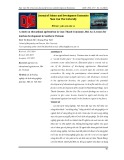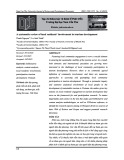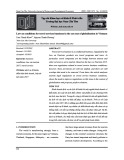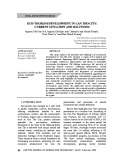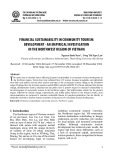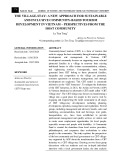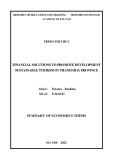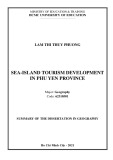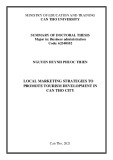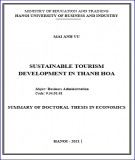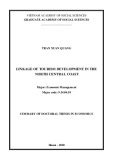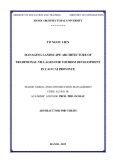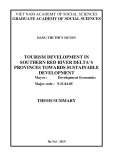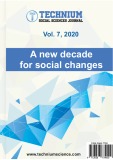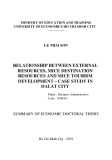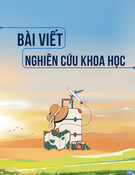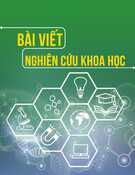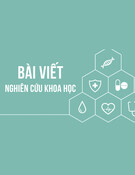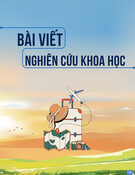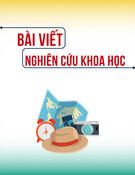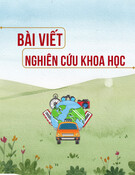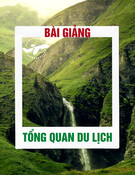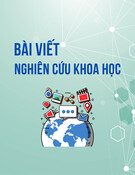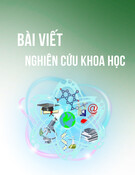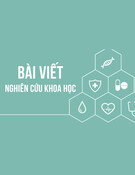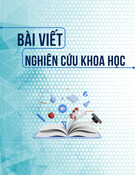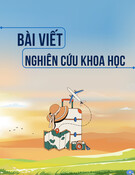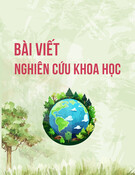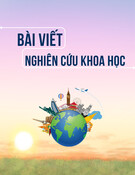
Nam Can Tho University Journal of Science and Development Economics ISSN: 2588 1272 No. 34 (2025)
96
Journal of Science and Development Economics
Nam Can Tho University
Website: jsde.nctu.edu.vn
A study on educational agritourism in Cam Thanh Commune, Hoi An: Lessons for
tourism development in Southern Vietnam
Dinh Thi Khanh Ha
1*
, Duong Thuy Tien
1
1
School of Hospitality and Tourism, Hue University
*
Corresponding author: Dinh Thi Khanh Ha (email: dtkha.hat@hueuni.edu.vn)
Received: 25/12/2024
Revised: 10/1/2025
Accepted: 12/2/2025
Keyword: agritourism,
educational agritourism, Hoi
An, Vietnam
Từ khoá: du lịch nông
nghiệp, du lịch nông nghiệp
giáo dục, Hội An, Việt Nam
ABSTRACT
As an agricultural country, Vietnam aims to make the rural area
a “worthy livable place” by connecting agriculture with a dynamic
economic sector called tourism. Education plays a crucial role as
one of the functions of developing agritourism. Educational
agritourism thus becomes a new research topic for scientists and
researchers. By using the participatory observational research
method and personal in-depth interviews with 20 farmers involved
in the agritourism business, the paper analyzed the potential
development of educational agritourism, its benefits and the roles of
farmers in the development of this model in Thanh Dong Village, Cam
Thanh Commune, Hoi An City. The research findings are used as a
premise to give some lessons learned to apply and develop the
educational agritourism model in the Southern region in the future.
TÓM TẮT
Là một nước nông nghiệp, Việt Nam đặt mục tiêu biến khu vực
nông thôn thành “nơi đáng sống” bằng cách kết nối nông nghiệp với
ngành kinh tế năng động là du lịch. Giáo dục là một trong những
mục tiêu quan trọng để phát triển du lịch nông nghiệp. Du lịch nông
nghiệp giáo dục do đó trở thành chủ đề nghiên cứu mới của các nhà
khoa học và nhà nghiên cứu. Bằng phương pháp nghiên cứu quan
sát có tham gia và phỏng vấn sâu 20 người dân tham gia kinh doanh
du lịch nông nghiệp, bài tham luận đã phân tích được tiềm năng phát
triển của du lịch nông nghiệp giáo dục, lợi ích và vai trò của người
nông dân đối với việc phát triển mô hình này tại thôn Thanh Đông,
xã Cẩm Thanh, thành phố Hội An. Kết quả nghiên cứu được sử dụng





